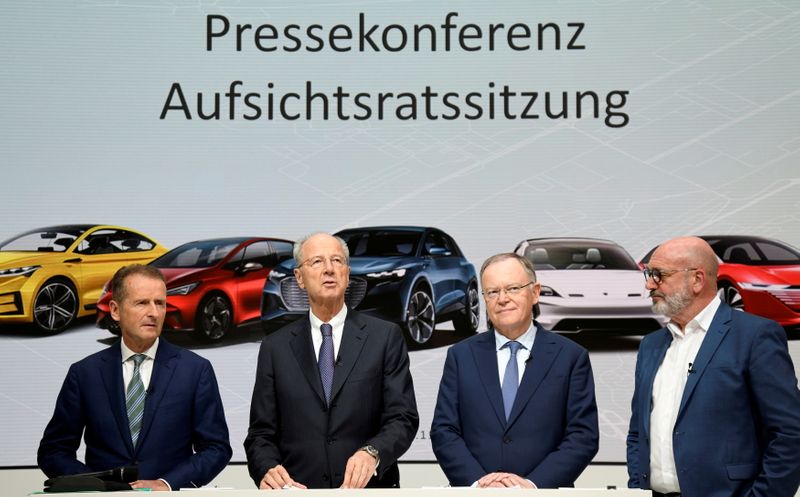By Christoph Steitz and Jan Schwartz
MUNICH (Reuters) - Volkswagen (DE:VOWG_p) may have to spend more to deliver its planned transformation, the German carmaker's supervisory board chairman said, particularly a shift towards autonomous driving.
The world's second-largest automaker, which plans to invest 150 billion euros ($178 billion) in its business by 2025, has repeatedly said that it can fund the transition towards electric vehicles and autonomous driving based on current cash flows.
"We are in a phase where substantial free cash flows are being generated. That means we can pay out good dividends as well as comfortably fund our business going forward," Hans Dieter Poetsch told Reuters at the IAA (NYSE:IAA) Munich car show.
"But of course we are in an environment in which we cannot rule out that larger sums, for example in the field of autonomous driving, have to be invested," Poetsch, who is also chief executive of Porsche SE, which is Volkswagen's largest shareholder.
"It is therefore recommendable to think one or two steps ahead," Poetsch added, without specifying details.
Toyota Motor (NYSE:TM) Corp said on Tuesday it expects to spend more than $13.5 billion by 2030 to develop batteries and a battery supply system as the world's largest automaker moves to deliver its first all-electric line-up next year.
Poetsch declined to comment on a potential initial public offering of luxury car division Porsche AG, which sources told Reuters in May is a scenario Volkswagen has contemplated should it require more money to pay for its strategy.
"From today's point of view our financial situation is relatively comfortable. And as part of our planning rounds, which we are holding each year, we are regularly reviewing where there is a need," Poetsch said.
Analysts reckon that a partial IPO of Porsche, speculation over which has regularly lifted Volkswagen's stock, could value the unit at 45 billion euros to 90 billion, a major lever Volkswagen could pull to fill its coffers.

"The clever finance executive will always have a list with options for how to provide extended financial flexibility for the company," Poetsch added.
($1 = 0.8421 euros)